Unwanted produce. Old soap. Mattress frames. This is some of the “waste” that Simon Fraser University students and alumni are helping repurpose for new uses.
Through their enterprises, they invite consumers to question their everyday habits when it comes to throwing things away, and also think about what is considered waste.
After all, waste is costly. Food waste in Canada costs more than $31 billion a year, according to a 2014 report by consulting firm Value Chain Management International. This includes the millions of kilograms of food that go to waste in homes, restaurants and grocery stores.
Totals from government institutions and related costs like energy, labour, and infrastructure aren’t included in the total, so the true cost is estimated to be closer to $100 billion a year.
With that in mind, here are three enterprises in Metro Vancouver that are rescuing things that aren’t necessarily trash and finding new uses for them.
1. Refood
Danison Buan helps make 2,000 meals a week from unattractive food that grocers and supermarkets don’t want.
“Many people don’t understand the scale of exactly how much food is thrown away,” Buan said.
Buan started Refood to stop edible produce from going into the trash and instead serve it to those who need it. A chef and restaurant owner, he knows a lot of food is wasted because of how it looks.
“It’s dated, surplus food that doesn’t look pretty and can’t be sold, but is still good, as long as we’re able to move fast to freeze it or cook it,” he said.
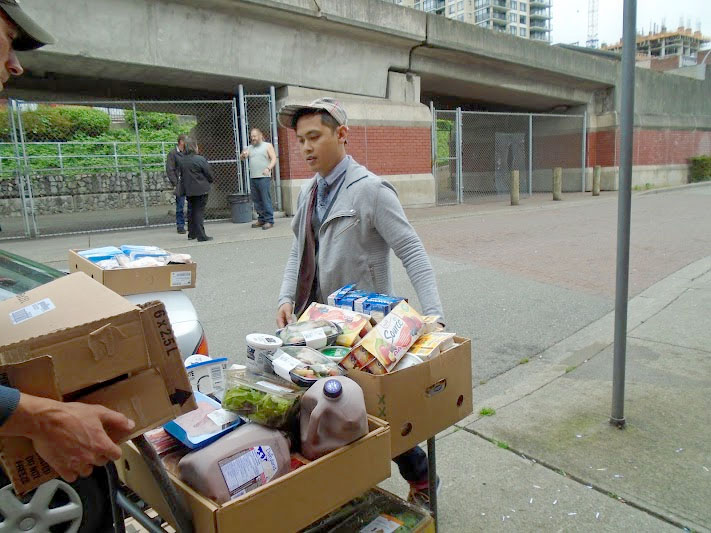
Six businesses, supermarkets and grocers are currently supplying goods to Refood. Organizations like Union Gospel Mission, St. Barnabas Anglican Church and Aunt Leah’s Place let Refood know what they need, and Buan and his team do their best to fulfill those needs from what food they collect. Buan also gives them tips on how best to prepare the food.
Syrian refugees, low-income seniors, single parents, and shelter patrons are some of the groups who have benefited from Refood’s supplies. Some recipients have even visited the businesses doing the giving to thank them, and it’s prompted them to give even more, Buan said.
“The businesses think they’re just giving food and don’t realize the bigger picture, until the [recipients] come and say, ‘Thank you so much for sending this. Now I can feed my family.’”
As for what’s next, Buan wants even more food “refooded.” Ten thousand meals a week is the goal.
It’s a big target, but 30-year-old Buan said he’s always been ambitious. Aside from Refood, he runs a food truck, a microfinance company based in the Philippines, and a restaurant. He’s also a father and in his fourth year studying health sciences at Simon Fraser University.
“We’re running it really efficiently at a very low cost,” said Buan, who only puts six hours of his week into running Refood, “and the output is great.”
2. Soap for Hope
For this project, hundreds of lightly used soap bars from Vancouver hotels are collected, cleaned, grated, and melted down -- all to be used again as liquid soap.
A mix of liquid glycerin, oils, and aloe are added to the recipe. The liquid soap is then sold to local businesses.
“It’s neat because it gets rid of the stigma of reusing and sanitizing something that people don’t typically think of reusing,” said Marilyn Yeo, the co-program manager of Soap for Hope behind the project.
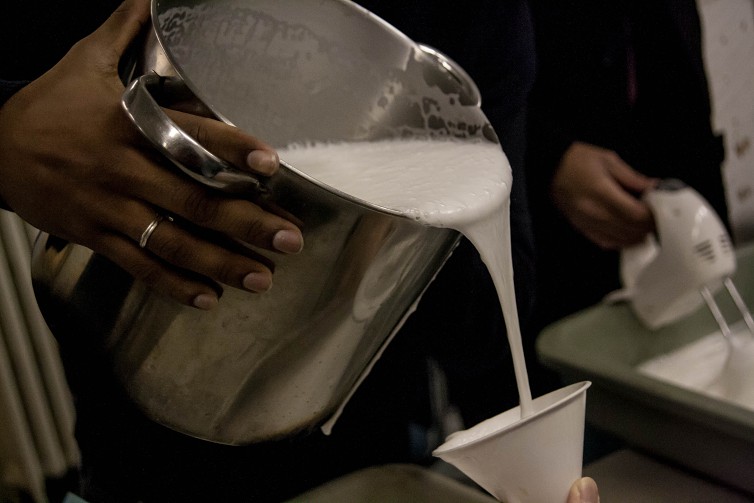
Mission Possible, a non-profit in the Downtown Eastside, collects the bar soaps destined for landfills. Partnering groups at Simon Fraser University help with the next steps. 4D Labs, the school’s materials science research institute, works on the research and development of the liquid soap.
Soap for Hope manages the whole process, headed by students chosen through an entrepreneurial program called Enactus SFU. They take care of the sales, marketing and finances.
Soap for Hope is working to develop a competitive consumer bar soap next. Groups in Surrey and Toronto have also expressed interest in implementing a similar program in their communities.
3. Uproot
Kevin Kimoto is the co-founder of the social enterprise Uproot, which takes recycled materials, mostly wood waste, and turns them into new products like shelves, stools, chalk-boards, even birdhouses. There are different sources for wood waste, everything from two-by-fours to mattress frames.
In 2015, Kimoto helped make a giant, floating salmon lantern out of wood waste and yoga pants. It was for Greenpeace’s Toast the Coast festival at Jericho Beach, and the lantern was kept float by pontoons made of milk jugs. The project furthered Kimoto’s belief in the potential of wood waste and reusing.
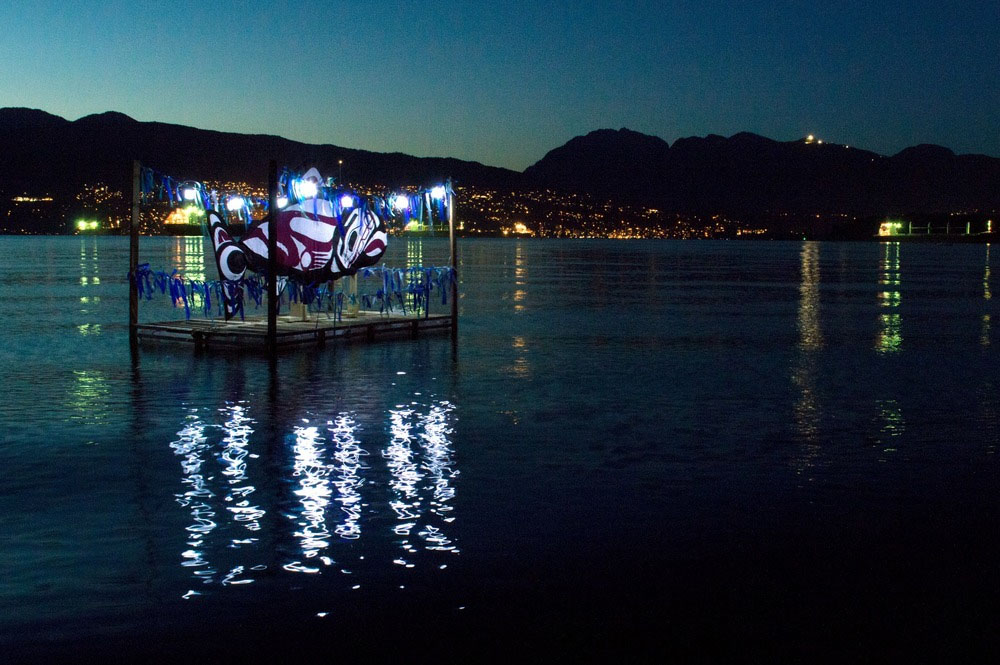
Uproot has made public installations and projects for local businesses so far, and is preparing to launch their products online.
“Wood waste is great because it’s clean, it’s organic, and at the end of its life cycle, it can be reused again,” Kimoto said.
Kimoto, who in 2015 majored in sociology at Simon Fraser, has always been interested in environmental causes growing up in his hometown of Vancouver.
“I’ve always felt a profound connection to nature here in B.C.,” he said. Kimoto is a fourth generation Japanese-Canadian, his grandfather born on Vancouver Island was a logger, and his last name means “origin.”
His work at Uproot is part of what many are calling a “circular economy.” A circular economy encourages resources to be used for as long as possible for the maximum benefit, and at the end of that service life, be recovered to the fullest extent to be used again.
It’s the opposite of a linear economy, where resources are used and then disposed.
New habits for a new economy
Organizers of all three enterprises hope to encourage the public to see waste differently and be more conscious about their daily habits.
Refood’s Buan knows this firsthand. “I have a hard time teaching my own parents to recycle because they just like to throw things into the garbage,” he said.
Education is also a big part of why Kimoto decided to start Uproot. “It’s incredibly difficult for people to feel they can create significant change by simply changing the way they’re living,” he said.
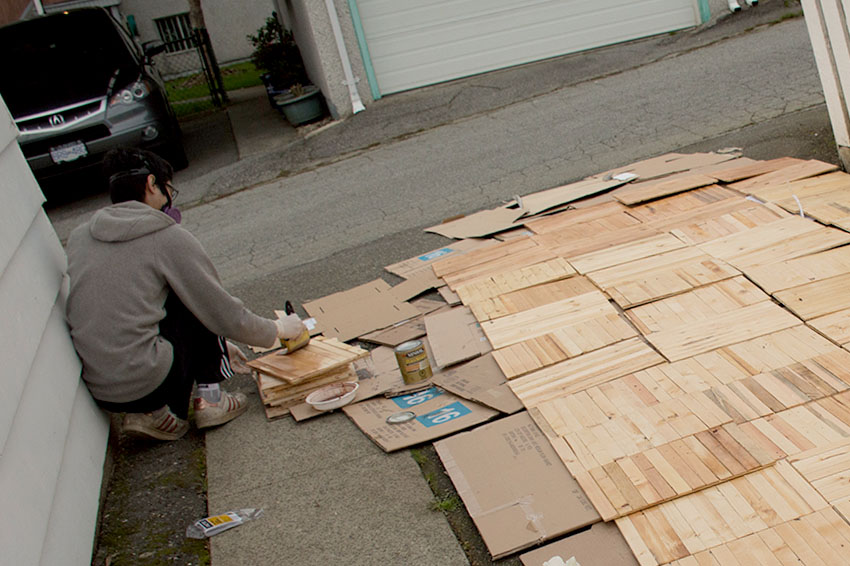
It’s why Kimoto likes working with youth and doing public projects. He coaches teachers on how to talk about sustainability with students and is also working on installations at the Museum of Vancouver to explain the circular economy.
He hopes projects like Uproot will inspire others. “We can help by showing people that there are new ways to move forward that are definitely less wasteful than the way we are currently living,” he said. ![]()
Read more: Environment
This article is part of a Tyee Presents initiative. Tyee Presents is the special sponsored content section within The Tyee where we highlight contests, events and other initiatives that are either put on by us or by our select partners. The Tyee does not and cannot vouch for or endorse products advertised on The Tyee. We choose our partners carefully and consciously, to fit with The Tyee’s reputation as B.C.’s Home for News, Culture and Solutions. Learn more about Tyee Presents here.




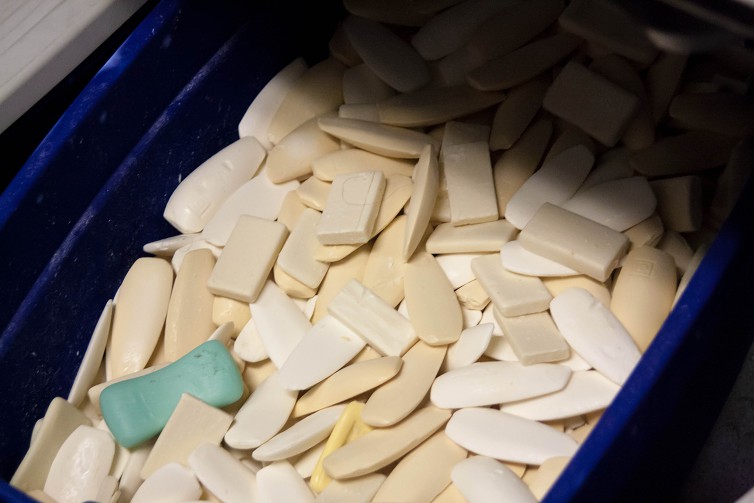












Tyee Commenting Guidelines
Comments that violate guidelines risk being deleted, and violations may result in a temporary or permanent user ban. Maintain the spirit of good conversation to stay in the discussion.
*Please note The Tyee is not a forum for spreading misinformation about COVID-19, denying its existence or minimizing its risk to public health.
Do:
Do not: